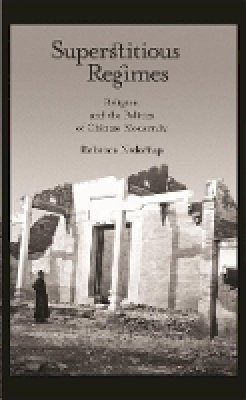
Superstitious Regimes: Religion and the Politics of Chinese Modernity
Rebecca Nedostup
We live in a world shaped by secularism—the separation of numinous power from political authority and religion from the political, social, and economic realms of public life. Not only has progress toward modernity often been equated with secularization, but when religion is admitted into modernity, it has been distinguished from superstition. That such ideas are continually contested does not undercut their extraordinary influence.
These divisions underpin this investigation of the role of religion in the construction of modernity and political power during the Nanjing Decade (1927–1937) of Nationalist rule in China. This book explores the modern recategorization of religious practices and people and examines how state power affected the religious lives and physical order of local communities. It also looks at how politicians conceived of their own ritual role in an era when authority was meant to derive from popular sovereignty. The claims of secular nationalism and mobilizational politics prompted the Nationalists to conceive of the world of religious association as a dangerous realm of “superstition” that would destroy the nation. This is the first “superstitious regime” of the book’s title. It also convinced them that national feeling and faith in the party-state would replace those ties—the second “superstitious regime.”
Product Details
About Rebecca Nedostup
Reviews for Superstitious Regimes: Religion and the Politics of Chinese Modernity
David Ownby
Journal of Asian Studies
Nedostup is a historian of modern Chinese politics, particularly of the Kuomintang (KMT); she explores the formation and the effects of the KMT's religious policies in order to shed new light on processes of state building and social reforms. But, in stark contrast to the many previous historians who have broached such topics in rather naive ways, she has a solid and nuanced understanding of what religion actually was in Republican-period Chinese society and never confuses ideological categories with social practice. She has notably taken stock of the most recent research on Republican-period redemptive societies (by Prasenjit Duara, David Ownby, and David Palmer) and has thus been able to astutely critique the characterizations of such religious groups by politicians. Her work is therefore extremely useful for scholars in the fields of religious studies and political, intellectual, and social history. For this alone, Nedostup's study is a historiographical milestone that demonstrates that the subject of religion is entering mainstream scholarship on Chinese modern history. That this milestone reflects an impressive command of a staggering body of primary and secondary literature, features sophisticated theorizations, and is rendered in finely crafted prose, speaks further to the importance and desirability of Superstitious Regimes... The state side of the story has been masterfully told by Nedostup, and it is very unlikely that her work will be superseded any time soon.
Vincent Goossaert
Harvard Journal of Asiatic Studies
